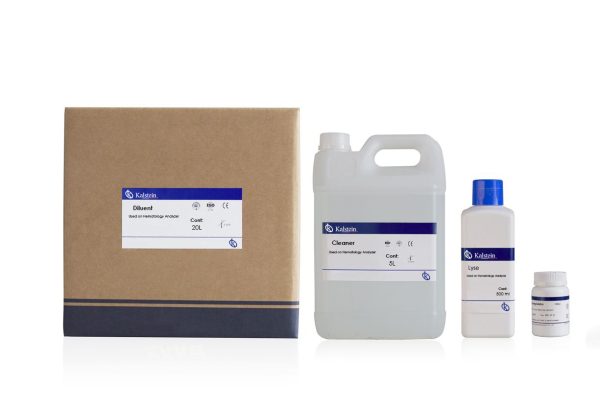Qualitative studies in hematology are an important way to understand the different biological processes related to the health of red blood cells, leukocytes and platelets. This area of study encompasses topics such as the diagnosis of hematological disorders, studying the factors that contribute to the regulation of these cells, as well as the treatment and application of specific therapies. Therefore, it is vitally important to ensure that the reagents selected to perform qualitative studies in hematology are the most appropriate to obtain the most accurate data.
The reagents selected for qualitative studies in hematology must meet a number of requirements to ensure that they obtain the most accurate data. These requirements include technical quality, stability, purity, effectiveness, precision and safety. A very important characteristic of the reagents needed for these studies is their ability to provide high precisions and accuracies. Also, the reagents chosen must be soluble in an ISO-certified fluid that is suitable for the test method used and must be compatible with each other. Basically, the reagent(s) selected should be similar to those used previously to obtain similar results.
What are the reagents used in qualitative studies in hematology?
There is a wide range of reagents available for performing qualitative studies in hematology. These reagents can be divided into two specific classes: specific diagnostic reagents and laboratory reagents. The former is designed for diagnosis and, therefore, contains the necessary components to perform specific tests and obtain accurate results. On the other hand, laboratory reagents are designed to provide regression data for different outcomes, such as malabsorption syndrome. Laboratory reagents can also be customized to fit the particular needs of qualitative studies.
Proper formulation of a reagent is also an important consideration to ensure reliable results. This means choosing the right form, concentration, volume and pH for the reagent. The pH plays an important role in qualitative studies in hematology, as the results change depending on the pH level. Therefore, the appropriate level must be obtained to obtain accurate results. Reagent manufacturers offer several options and brands to help users choose the right reagent for their qualitative studies.
There are many specialized reagent manufacturers that offer quality products for sale at attractive prices to customers. These reagent manufacturers often provide useful information on product selection and use, and should be evaluated to determine which brand is best suited for qualitative studies in hematology. It is also important to evaluate the quality of the products before selecting them to ensure reliability and safety.
What should be considered for the implementation of qualitative studies in hematology?
Proper training of technicians also plays an important role in selecting the right reagents for qualitative studies in hematology. Technicians must be aware of how to handle reagents and laboratory equipment correctly. This includes making sure that the equipment is properly set up and that the correct reagents are used to obtain the best results. In addition, technicians must also be prepared to answer any questions asked about the results obtained from qualitative studies.
In summary, it is necessary to select the right reagents to ensure reliable results in qualitative studies in hematology. These requirements include technical quality, stability, purity, effectiveness, precision and safety. The reagents needed for qualitative studies must also be soluble in an ISO-certified fluid that is suitable for the test method used. Proper selection of reagents and proper formulation of reagents, as well as proper training of technicians performing qualitative studies, are critical to ensure accurate results in qualitative studies in hematology.
Hematology studies with Kalstein reagents
Qualitative tests can identify certain markers indicative of pathology. With Kalstein reagents, for example, it is possible to establish liver and kidney function through specific tests. For the purchase of our products, and any other technical information, click on the links HERE and HERE.

